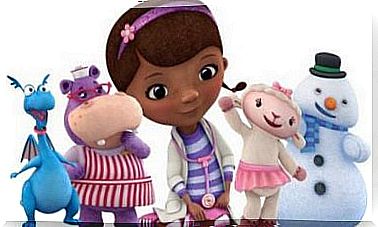Children’s Basic Needs

“What are the basic needs of children? What can children never be without? ” These are questions that all expectant mothers and fathers can ask themselves. Continue reading to discover what basic needs are considered as pillars for healthy development.
Physician and author T. Berry Brazelton and child psychologist Stanley I. Greenspan had no doubt about the most important needs of children. They argued that meeting the basic requirements builds a solid foundation for developing children’s intellectual, social, and emotional abilities.
Children’s basic needs
1. Security
Children must be allowed to grow up in a safe and healthy environment. The concept of security encompasses all the basic survival needs: clothing, protection, nutrition, nursing, medical care, etc.
Nevertheless, it also includes emotional security. Situations that may seem simple or insignificant to us adults can be anxious for children. In addition, it is important that we help them understand all their feelings.
2. Healthy relationships
It is important to educate children not only with discipline. Words and deeds should promote trust and respect. In the same way, a child’s family bond affects his or her emotional development.
Psychologists such as Anna Freud or Erik Erikson claim that children need an education or upbringing that does more than just point out their shortcomings. In other words, their education and upbringing should build loving relationships that make them feel safe.

In addition, Brazelton and Greenspan claim that healthy interaction and warmth help the central nervous system in infants and young children to develop. In other words, the most important learning takes place in the early years through contact and human interaction.
Stability and consequences
Children need direct and consistent instruction. That is, parents with very different attitudes to parenting are not ideal. Parents must present a united front so that they agree on the message they are sending their children and the values they have together as a family.
In addition, children should be brought up in a stable environment where they can feel at home. The home environment should be calm, warm and empathetic. In addition, household members should work to build trusting relationships.
4. Leisure and play
All children must have some free time every day. It is as important as any other basic need. Leisure allows you to break out of the routine and experiment with new things. In the same way, leisure time affects one’s mood and emotions positively and as such directly affects the child’s development.
Manuel Cuenca says in his book “Valueable Leisure” that leisure expands and strengthens social, physical and intellectual resources, especially in children.
5. Physical activity
Today, unfortunately, it is increasingly common to encounter children with a sedentary lifestyle. Not only has the way children have fun changed, but so has the way they relate to each other.
This means that they do not have to leave the house to play with their friends because they can constantly text and send videos to them without leaving their rooms.
But the lack of physical activity among children is alarming for health experts. For example, José Devís and Carmen Pieró, experts in physical exercise, believe that the absence of physical activity is a risk of genetic cardiovascular disease in future generations.
It is up to parents, teachers and school administrators to pay extra attention to the fact that the children get enough physical activity.
Parents and teachers have a responsibility to provide their children with a lifestyle in which they participate in sports and other physical activities for both their physical and mental health.
6. Education
In an article on the basic needs of children, we can of course not forget education; it plays a big role in our way of being and relating to the outside world. It is a human necessity. Thanks to education, we learn how to behave in society and follow the norms that make us a part of it.

From an early age, it is important that children receive a high-quality education that helps them understand how the world works and, above all, how to interact with it. In Sweden, all children have the right to education, but for millions of children around the world, this basic need is not met. We can only hope that in the future it will be a human right for all.









